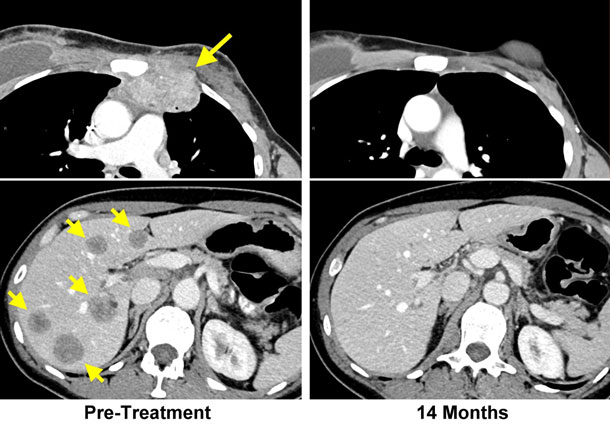 |
| Image courtesy Duke Health |
The early stage clinical trial results of the poliovirus therapy were presented June 26 at the 22nd International Conference on Brain Tumor Research and Therapy in Norway and simultaneously published in June 26, 2018 The New England Journal of Medicine.




